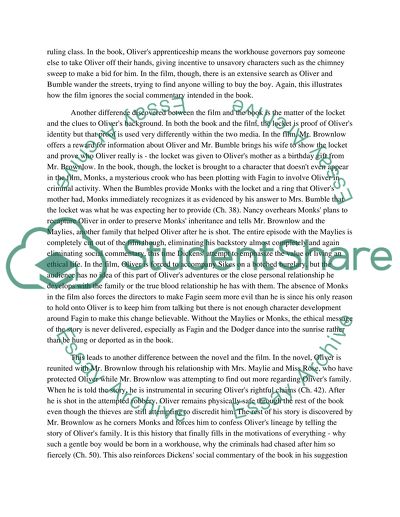Cite this document
(“Oliver Twist: Twisting the Tale Through Film Essay - 1”, n.d.)
Retrieved de https://studentshare.org/literature/1454125-oliver-twist
Retrieved de https://studentshare.org/literature/1454125-oliver-twist
(Oliver Twist: Twisting the Tale Through Film Essay - 1)
https://studentshare.org/literature/1454125-oliver-twist.
https://studentshare.org/literature/1454125-oliver-twist.
“Oliver Twist: Twisting the Tale Through Film Essay - 1”, n.d. https://studentshare.org/literature/1454125-oliver-twist.


